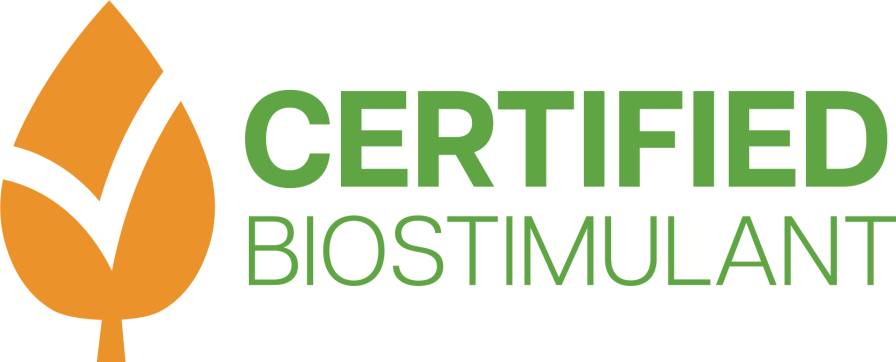ARA Legislative Review: Looking Ahead To 2012
We anticipate an exciting year in Washington, DC, and what happens will have real implications for the agricultural industry. The 2012 Presidential race will be decided in November, along with 33 Senate seats and the House of Representatives. House incumbents will be campaigning for their seats in a time of extreme disapproval of Congress and after recent redistricting. The administration and Congress are attempting to separate themselves from the nation’s economic problems and political gridlock. Furthermore, the Agricultural Retailers Association (ARA) anticipates legislative and regulatory action on a number of major issue areas important to retailers and distributors of crop inputs — especially in the environmental, chemical security and transportation areas.
Environment
Water quality issues have risen to a high level of importance to the agricultural industry. Of top concern is the implementation of the Clean Water Act (CWA) Pesticide General Permit (PGP) for aquatic pesticide applications. The agriculture industry is enthusiastically pushing forward with legislation (H.R. 872) that would eliminate the need for CWA NPDES (National Pollutant Discharge Elimination System) permits for FIFRA-compliant (Federal Insecticide, Fungicide and Rodenticide Act) pesticide applications, while states and the EPA are attempting to get their permitting programs started. Although permits vary by state, operators under EPA’s permit were automatically covered by the PGP until January 12, 2011. Their Notice of Intent paperwork was due to EPA 10 days prior to that date.
EPA is also moving forward with regulating nutrients in water. In the Chesapeake Bay, EPA has created a TMDL, or pollution diet, to regulate phosphorus, nitrogen and sediment. ARA is skeptical of the modeling techniques used to determine the agriculture sector’s allocation loads in the bay and is also frustrated by EPA’s use of authority over the states. The allocations fail to account for the conservation practices already adopted in the area. This program threatens to take much cropland out of production in the six Chesapeake Bay Region states.
Similarly, EPA has finalized CWA Numeric Nutrient Criteria (NNC) for lakes and streams in Florida and plans to finalize NNC for its estuarine and coastal waters later this year. This is another case where EPA has asserted jurisdiction over a state’s water quality programs. ARA is involved in litigation over this issue (likely to be resolved in 2012). ARA is arguing that the finalized criteria are not scientifically defensible and that EPA did not have the authority to assert itself over the state’s NNC determinations. This case will be important as many other states and regions are facing similar NNC pressures from EPA. ARA also continues to work on the legislative front to resolve this issue.
Further complicating these issues, EPA is planning to issue regulations that would greatly expand the reach of the CWA, including all ephemeral streams. This would have far-reaching implications to the CWA programs, including the pesticide permits and nutrient water quality issues, so ARA is working with a large group of allied industries to combat this rulemaking.
Chemical Security
The Chemical Facility Anti-Terrorism Standards (CFATS) program is operating under temporary Congressional authorization and needs to gain a long-term authorization. ARA supports a permanent authorization of the CFATS program, but opposes efforts to include an inherently safer technology (IST) mandate, third party enforcement provisions and weakening of federal preemption in the legislation. In 2012, ARA is optimistic Congress will pass a straight reauthorization of the CFATS program for an additional three to five years.
Last year, the Department of Homeland Security (DHS) proposed new ammonium nitrate registration regulations as part of the CFATS program. ARA was supportive of an AN program generally, but has several concerns with certain aspects of the proposal. For instance, how it overlays with other existing programs, personal surety and who is covered in the chain of custody. ARA will continue to work with DHS in 2012 to ensure that the final AN registration program is workable in the agricultural retail industry.
Transportation
The Highway Bill has been operating on short-term extension, and we are hopeful that a more long-term and strategic bill will be passed this year.
One of ARA’s primary goals in the next Highway Bill is to clarify that the agriculture hours of service (HOS) exemption includes movements from the distribution point to the retail facility. In 2009, the U.S. Department of Transportation (DOT) limited the agriculture HOS exemption from being applicable to all farm inputs from distribution to the farm to only anhydrous ammonia transportation. The HOS exemption allows agricultural truckers to avoid time limitations within a 100 air mile radius during planting and harvest seasons, as defined by each state. ARA is working to ensure that the exemption’s statutory language is clarified so that movement of all farm inputs will fall under the exemption. ARA is also advocating for extending the limitation on distance from 100 to 150 air miles.
Congress will also consider reauthorizing the Hazardous Materials Transportation Act (HMTA). ARA is asking Congress and DOT to reform the Hazardous Materials Safety Permit (HMSP) program because the implementation of the current system makes it very difficult for carriers to qualify and stay qualified for the HMSP. Specifically, ARA is asking that the eligibility requirements do not float between permitting cycles, rural carriers are not statistically biased against due to fewer inspections and categories of measure are aggregated so that only the bottom 30% are disqualified.
Within the HMTA reauthorization and Homeland Security Committees, ARA plans to continue to advocate for streamlined credentialing, the elimination of duplicative background checks and decreased overlap in federal regulation requirements between agencies. Last year, the House introduced a piece of legislation called the “MODERN Security Credentials Act” that would resolve many of these credentialing issues. ARA is working in both the House and Senate to get this legislation passed in 2012.
DOT has been rolling out the Compliance, Safety, Accountability (CSA) initiatives to improve large truck and bus safety and ultimately reduce crashes, injuries and fatalities that are related to commercial motor vehicles. ARA expects DOT to propose CSA Safety Fitness Determination (SFD) levels in early 2012. SFDs will determine intervention levels for motor carriers, so ARA plans to work with DOT on the final SFD’s to ensure that they are practical for agricultural retailers.
Farm Bill
Due to the failure of the Deficit Reduction super committee, ARA anticipates a normal Farm Bill legislative process in 2012. ARA has primary concern in several areas of the Farm Bill.
In the 2008 Farm Bill, ARA led the effort to secure the Agricultural Chemical Security Tax Credit — 30% tax credit of aggregate amount spent on security measures up to $100,000 per facility, limited to $2 million a year per company. The tax credit will expire with the current Farm Bill, so ARA will work to extend the tax credit beyond 2012, but anticipates a tough fight due to budgetary concerns.
ARA also supports risk management tools for our farmer customers, like crop insurance. Conservation resources should be used wisely. CRP enrollment should be limited to highly erodible land and CEAP data on conservation practices should be maintained. The biotech approval process should be modified so that new technologies can come into the market.
ARA looks forward to facing the challenges and opportunities in 2012.





